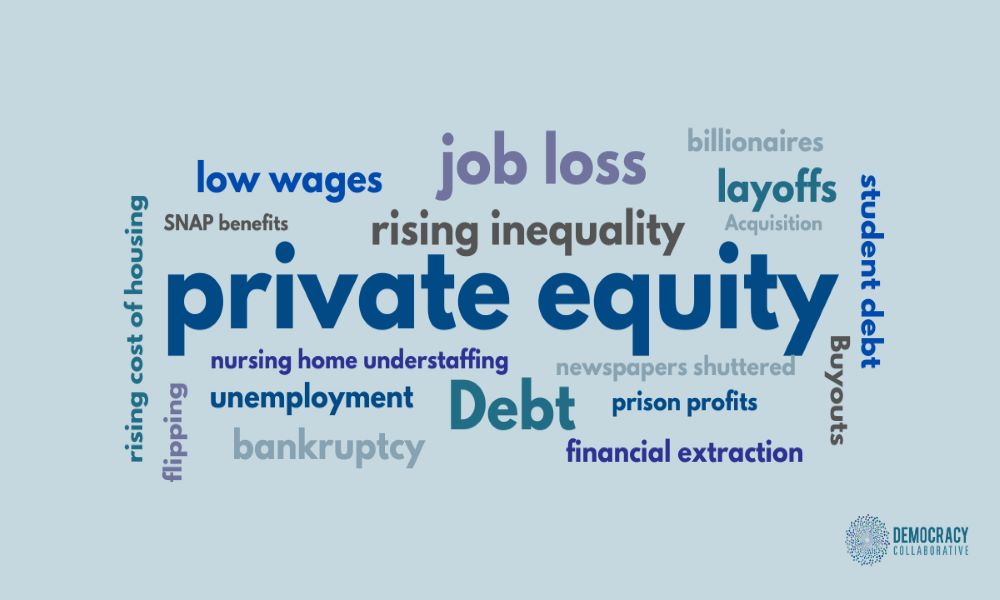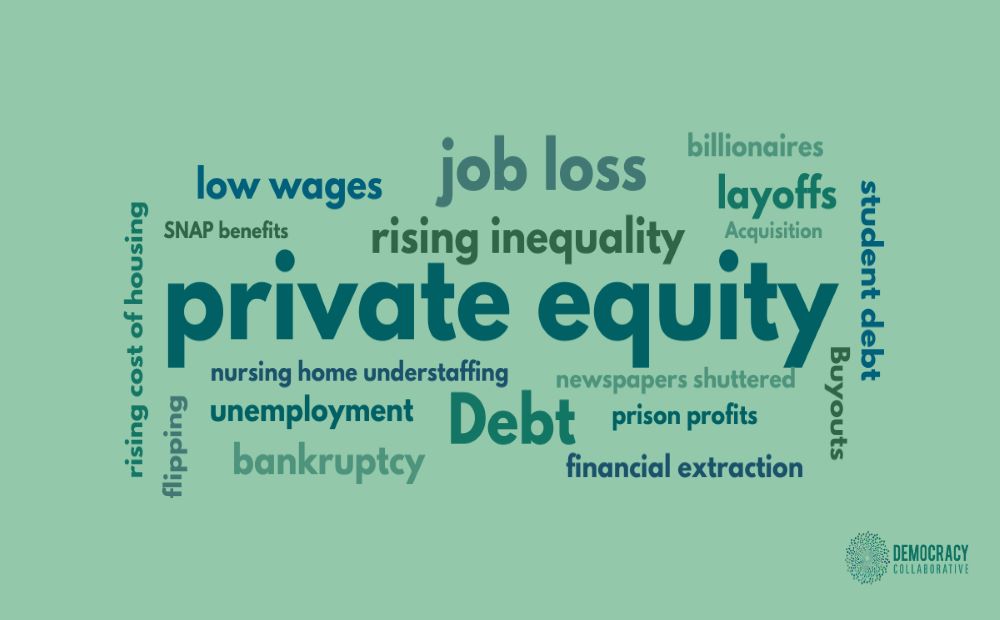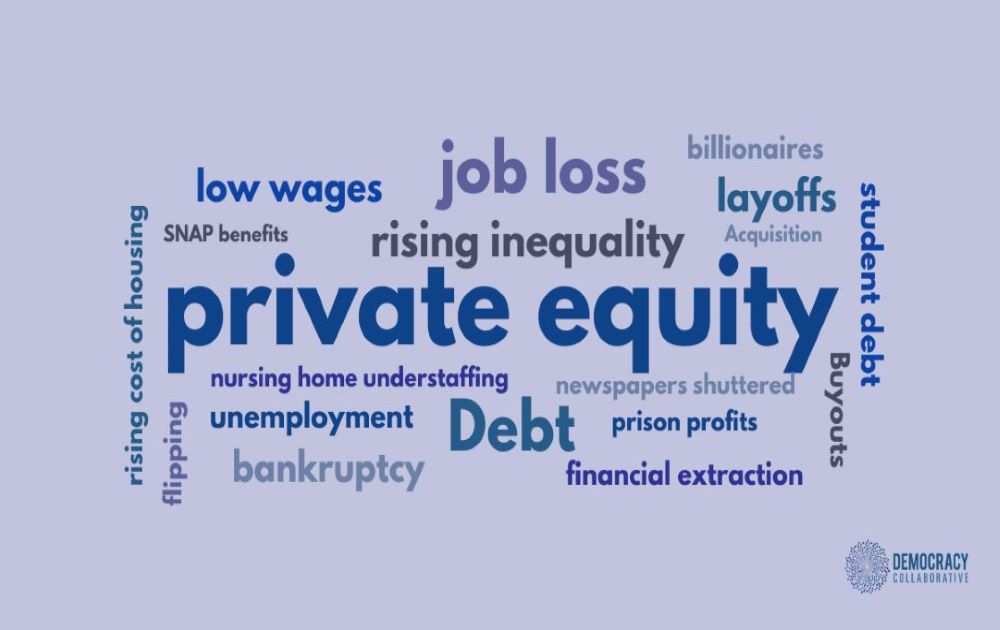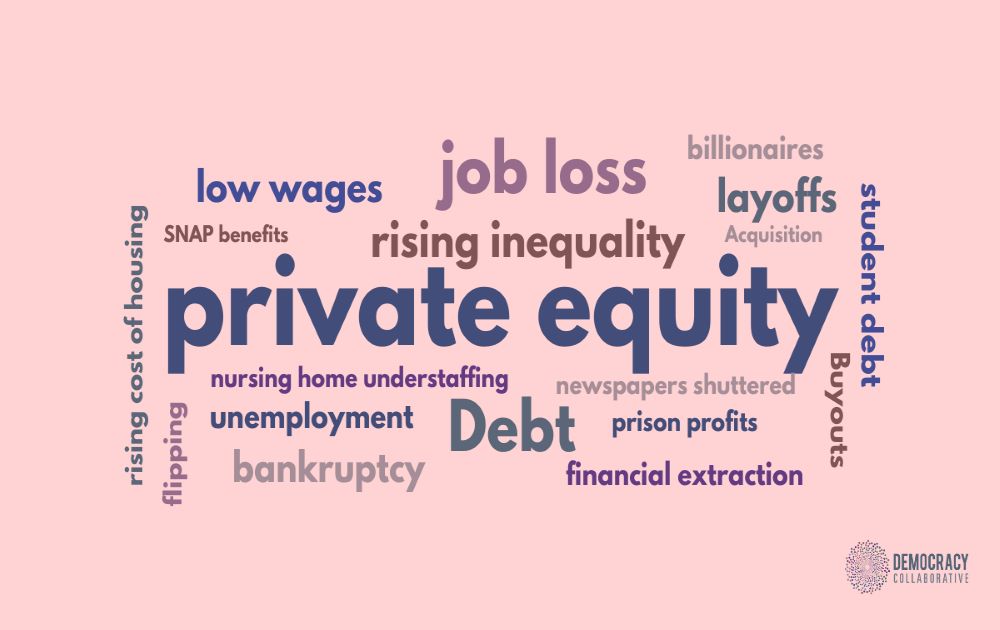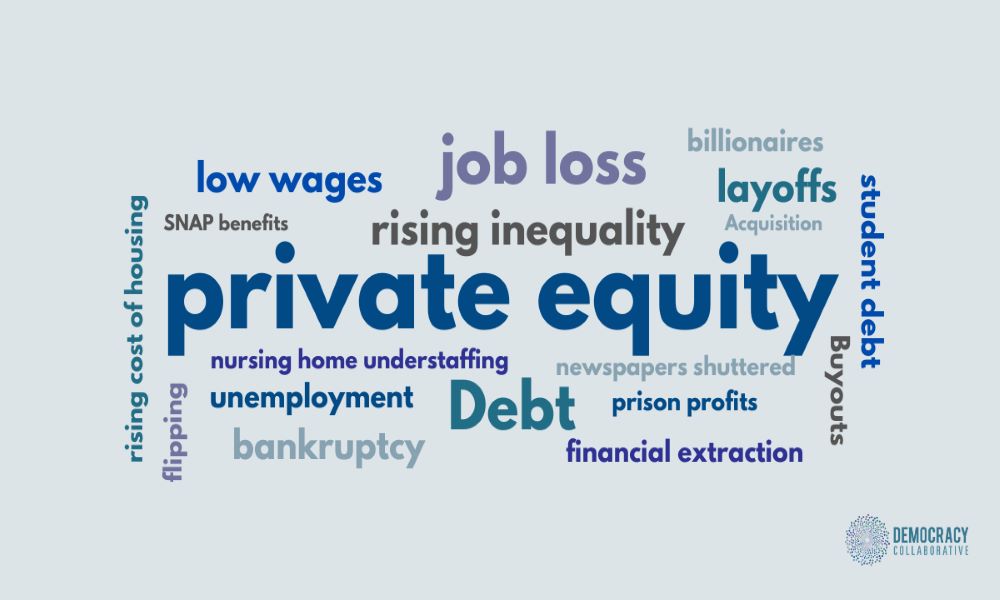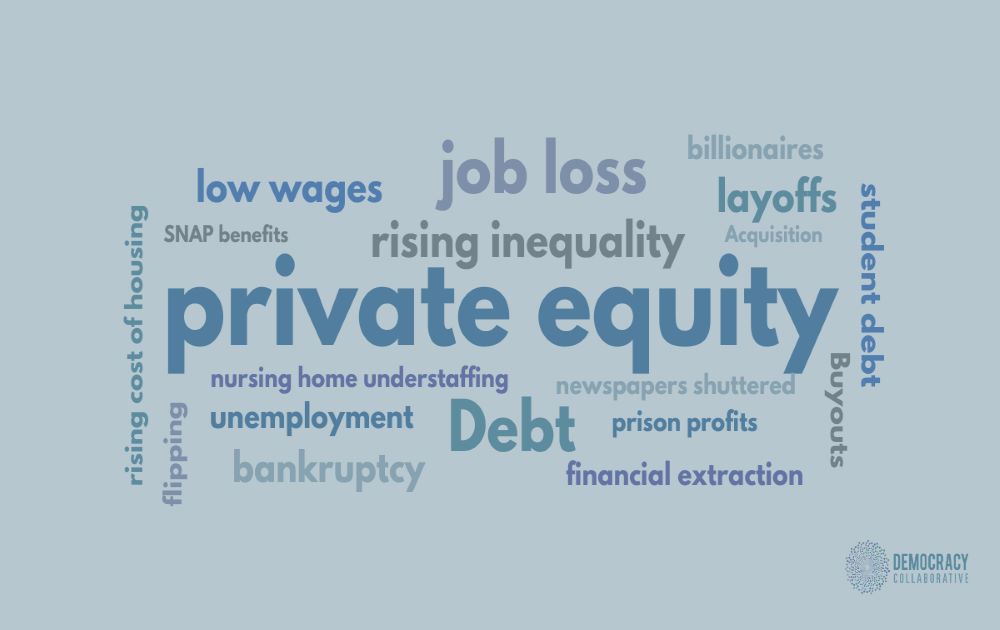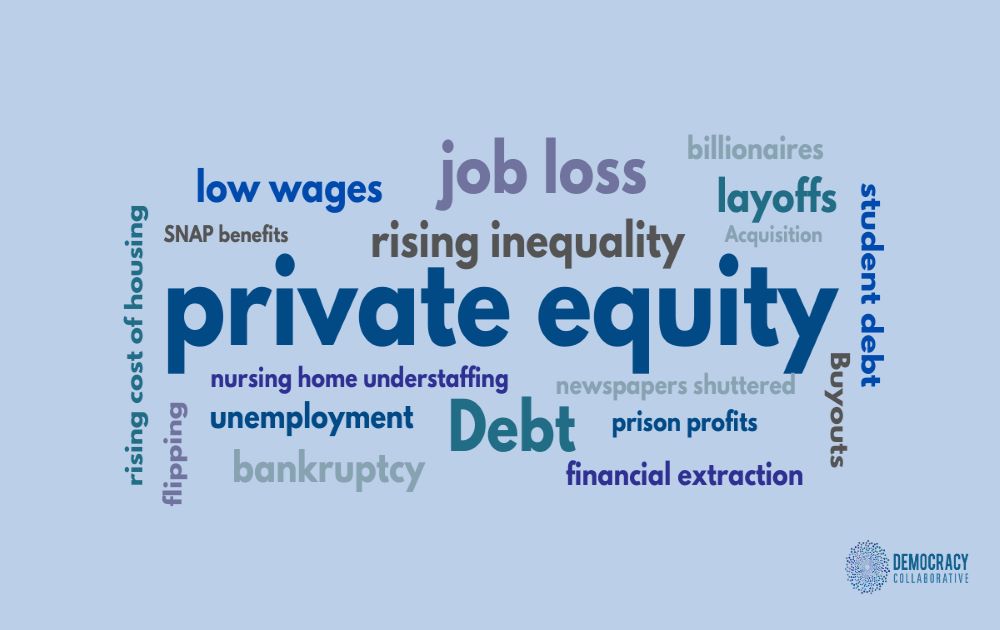What the launch of Ownership Works means to the employee-ownership movement
by Marjorie Kelly & Karen Kahn
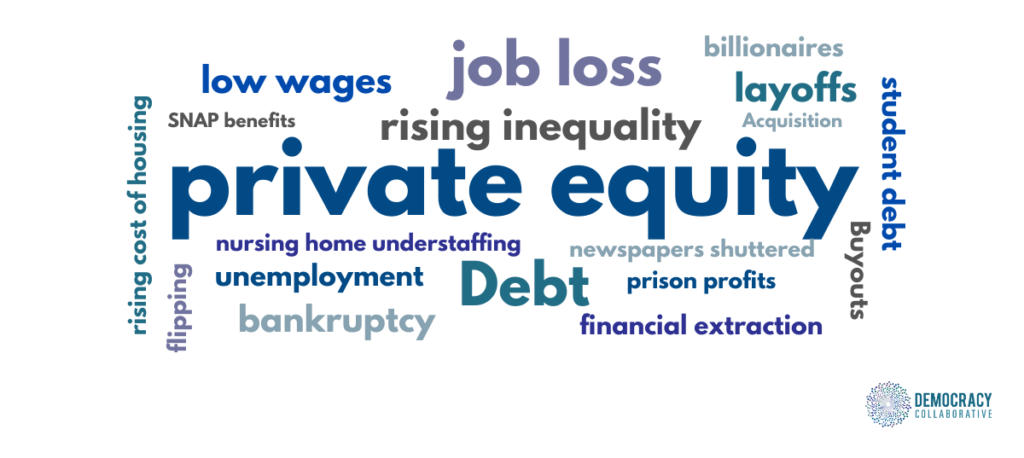
In April, a splashy ad appeared in the New York Times announcing a new nonprofit, Ownership Works. The nonprofit is a collaboration between 60 organizations including private equity, philanthropic leaders, banks, pension funds, and worker advocates. The nonprofit will help companies structure and roll out broad-based equity programs that include all employees, from the CEO down to the shop floor. The goal is to create $20 billion in wealth over ten years for workers who have generally been an afterthought in the business of buying and selling companies.
Ownership Works is the brainchild of Pete Stavros, partner and co-head of private equity for the Americas at KKR and chairman of the new initiative. Stavros, in his previous role as head of industrials at KKR, has been granting equity stakes to employees at portfolio companies for about a decade. According to a recent article in Reuters, 45,000 employees at 25 KKR-backed companies have benefited. In his new role, Stavros just closed a $19 billion fund, which will deploy broad-based share ownership at all its portfolio firms.
We felt a great deal of unease about private equity entering the employee ownership space—and others did as well.
“This effort is about providing entry and mid-level workers with access to a wealth creation too—equity ownership—without a trade-off for wages or other benefits,” said Stavros. “At scale, this movement has the potential to build billions of dollars of wealth for millions of working families.”
Despite Stavros’ enthusiasm—and near universal agreement that he is sincere in his desire to better the lives of working people—we felt a great deal of unease about private equity entering the employee ownership space, so we reached out to others in the field. We found others equally uneasy—with many expressing private doubts and fears, some unwilling to put their name to these reactions in print. There were also those who felt this is a positive development—dramatically expanding the visibility of employee ownership. Others preferred a wait-and-see approach.
But many emphasized that any assessment of an initiative such as this from private equity (PE) must begin with acknowledging that field’s dramatically poor reputation when it comes to treatment of workers. The 19 PE funds partnering in the Ownership Works project—including firms such KKR, Goldman Sachs, Warburg Pincus, and Apollo —are known for enriching the very wealthy while overleveraging some of America’s greatest brands, stripping companies of their assets, loading companies with debt, and leaving workers without jobs. Examples of overleveraged companies forced into bankruptcy by private equity include Toys R Us, Hertz, Payless Shoes, and J.Crew.
Private equity has been a massive driver of inequality,” and regardless of what we think about this new initiative, “we should be critical of that,” said one commentator.
As one commentator said, “Private equity has been a massive driver of inequality,” and regardless of what we think about this new initiative, “we should be critical of that.”
We wanted to share our conversations with the field, so beginning May 19 we’ll be posting a series of articles that capture early reactions to the announcement of Ownership Works. To frame the discussion, see our three-part series, “Are the Barbarians at the Gate?”
Alongside these posts, we’ll be publishing a message from Jim Bonham, president of The ESOP Association, to his membership, which TEA has generously allowed us to repost. Additionally, we’ll post excerpts from our conversations with a wide range of stakeholders, including Andrea Armeni, executive director of Transform Finance; Joseph Cureton, Chief Coordinating Officer of Obran Cooperative; Andrea Dehlendorf, president of United for Respect; Ian MacFarlane, CEO of EA Engineering, a 100 percent employee-owned environmental consulting firm; Ian Mohler, partner at Mosaic Capital Partners; and Delilah Rothenberg, founder of the Predistribution Initiative.
We hope to begin a robust conversation, so please check out the content over the next week and send your comments to info@fiftybyfifty.com.
Are the Barbarians at the Gate?
Part 1: Can private equity be trusted to prioritize worker benefit?
Ian MacFarlane: Can we call this “employee ownership”?
It seems they’re doing what big capital does: take over a concept like employee ownership and make it their own in order to make more money.
Continue Reading Ian MacFarlane: Can we call this “employee ownership”?
Jim Bonham: Enter the Dragon?
Making modest investments to a non-profit in order to take shelter from the negative public sentiment resulting from the massive and growing wealth inequality in America is a cheap way to diffuse heat.
Are the Barbarians at the Gate?
Part 2: If equity shares increase workers’ productivity, who benefits?
Delilah Rothenberg: A step in the right direction, but only one piece of the puzzle
As long as the wealth of GPs grows exponentially faster than that of everyone else, economic inequality will continue to grow.
Continue Reading Delilah Rothenberg: A step in the right direction, but only one piece of the puzzle
Ian Mohler: A Piece of the Pie Is Better than No Slice at All
Offering equity to workers is a good thing, and we can argue later about what share of the pie is most appropriate.
Continue Reading Ian Mohler: A Piece of the Pie Is Better than No Slice at All
Are the Barbarians at the Gate?
Part 3: Is this real employee ownership?
Joseph Cureton: Success is more than an increase in financial value
I see this as an opening, an opportunity for the idea of worker ownership to become more mainstream.
Continue Reading Joseph Cureton: Success is more than an increase in financial value
Andrea Armeni: An Opportunity to Spur Deep Structural Change
Ownership Works can be a conversation starter and spur conversations about who is creating the value and who should capture it.
Continue Reading Andrea Armeni: An Opportunity to Spur Deep Structural Change
Andrea Dehlendorf: Working with Private Equity to Make Jobs Better
Americans need to better understand the role of Wall Street and private equity in our economy.
Continue Reading Andrea Dehlendorf: Working with Private Equity to Make Jobs Better
Will Equity Shares Improve Outcomes for Workers?
This seems like a time of messy growth for employee ownership.
Continue Reading Will Equity Shares Improve Outcomes for Workers?
To follow Employee Ownership News, subscribe to our newsletter.
